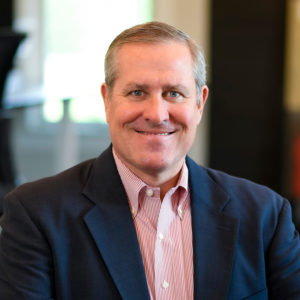Are you ready to retire? Are you sure? Think about it before you say, “Yes!”
Most of us really look forward to the idea of well-deserved, unstructured free time. A time to do exactly what we please when we please – spend time with family, pursue hobbies, volunteer, travel. Until we get there. The 2018 Global Retirement Reality Report found that only 53% of Americans said they were happy in retirement. Some retirees underestimate how long it takes to adjust to what may be a radically different lifestyle; others miss their friends from work; still others find themselves with too much free time on their hands between grand adventures and visits with the grandkids.
Like all major life events, transitioning to a retirement lifestyle can be a major adjustment and comes with a few hiccups along the way. One day, you may go from your seat at the top as a powerful executive to a lounge chair in your living room with the TV or Fido for company. The point is, without your career to define you, what will?
Finding the answer takes a lot of preparation – emotionally, physically and financially – and a lot of thought. While the financial component is critical to a sustainable retirement, so is your quality of life. Too few people consider the psychological factors, which include letting go of your career identity, shifting social networks and spending more unscheduled time with your spouse, as well as the need to find new and engaging ways to stay active.
It’s crucial that would-be retirees invest in their social, physical and psychological needs as well as their financial ones. And that takes planning. Here’s what we mean.
All or nothing?
It turns out you don’t have to go all-in on retirement. You can transition into it, while still working. In the years before you plan to retire: Practice. Try out different aspects of your proposed retirement and see if they are as fulfilling as you imagined. If traveling is on your agenda, start with extended trips to areas of interest (when the time is right). Pickleball more your cup of tea? Practice now to ensure it’s as fulfilling as you hope. Doing so, while you still have a job, can help with your eventual satisfaction in retirement. You may find you prefer a sort of hybrid retirement that perfectly blends work and leisure into the ideal mix for you.
You’re looking for fulfilling activities that also fill up your time in meaningful ways. Having an emotional connection, a purpose, to your activities helps motivate you and creates a sense of contentment. So it’s important to really give some thought to what makes you happy. Allow yourself the luxury of introspection and give yourself permission to enjoy your 60s, 70s and beyond using the money you’ve saved specifically for this purpose.
Once you have a good idea of what makes life more meaningful for you, take the time to experiment, explore and reflect on both your leisure and work options (e.g., part-time, consulting, moving to a new industry) to find the right balance of time, money, work and play that will become your retirement lifestyle. This work-and-play approach works best for those near traditional retirement age who are willing and able to work longer in exchange for getting a good read on their retirement readiness.
Consider the work perks
There are several benefits of continuing to work, in any capacity, while you try on retirement for size. The additional income can help you:
- Avoid drawing down your retirement savings, allowing time for potential future growth.
- Start enjoying the retirement lifestyle that will be most fulfilling for you.
- Pay down unnecessary debt or splurge on a large purchase.
- Stretch your retirement savings. Even a part-time salary will reduce the amount you’ll need to withdraw. For example, making $10,000 a year is enough to replace a 4% annual withdrawal from a $250,000 portfolio.
- Delay taking Social Security, until age 70. Each year you wait adds 8% to your monthly benefits.
- Reduce out-of-pocket healthcare costs since you’ll still be covered under employer-subsidized insurance.
Sources: T.Rowe Price; Forbes; The New York Times “Thriving at Age 70 and Beyond”; Employee Benefit Research Institute estimates from Health and Retirement Study (HRS), April 2016; U.S. News & World Report, “How to be happier in retirement”; Hartford Funds/MIT’s AgeLab; ssga.com; Raymond James Commentary & Insights
Securities offered through Raymond James Financial Services, Inc., member FINRA/SIPC.© 2021 Raymond James Financial Services, Inc., member FINRA/SIPC. Investment advisory services offered through Raymond James Financial Services Advisors, Inc. King Financial Partners is not a registered broker/dealer and is independent of Raymond James Financial Services. This material has been created by Raymond James for use by its financial advisors.







